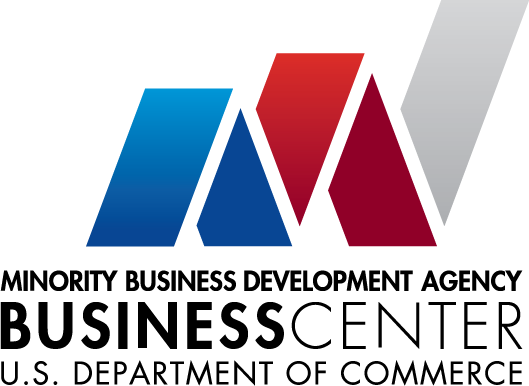
Small Business Certifications
The SBA provides details on each of these programs on their website at: SBA Contracting Programs
Certification programs qualify businesses to receive additional consideration for government contract awards. The programs are directed toward minority, social, and economic groups as well as lower-income geographic areas. There are two ways to certify: 1) self-certification and 2) official Small Business Administration (SBA) certification.
When registering or updating a System for Award Management (SAM) business registration, a business owner can fill in the correct boxes to self-certify as a veteran-owned, woman-owned, or a minority-owned business. The official certification programs involve a much more rigorous application process and provide program benefits.
A brief overview of the certification programs and links to additional information are listed below.
- Woman-Owned Small Business
- Veteran-Owned Business or Service-Disabled Veteran-Owned Business Certifications
- 8(a) Business Development Program
- All Small Mentor-Protégé Program
- HUBZone Program
- Natural Resource Sales Assistance Program
Woman-Owned Small Business
The Small Business Administration has a certificate program designed to assist women who own businesses in industries with underrepresentation of women-owned businesses. In contrast to the self-certification checkbox in the System for Award Management (SAM) registration, the Women-Owned Small Business (WOSB) or the Economically Disadvantaged Woman Owned Small Business (EDWOSB) is a formal certification process requiring document submissions and approval by the Small Business Administration.
Some government contracts qualify to be set-aside in order for socially and economically disadvantaged groups to benefit and meet government participation goals. Obtaining a WOSB or a EDWOSB certificate allows women-owned businesses to take advantage of these opportunities for women-owned businesses. Both WOSB and EDWOSB businesses are eligible for government contract set-asides and sole-source contracts in industries with businesses underrepresented by women.
There are two different routes women-owned small businesses can take in order to begin the certification process. The first is fill out and upload any necessary document using the WOSB/EDWOSB Portal and work directly with the Small Business Administration. The second route is to use one of the four SBA-approved Third Party Certifiers and pay for their services to obtain the WOSB or EDWOSB Certification. To learn more, visit WOSB/EDWOSB.
WOSB/EDWOSB PRE-ENROLLMENT CHECKLIST
- Is the business 51% owned or controlled by one or more women?
- Is the business primarily managed by one or more women?
- Does the business have a DUNS number and is it registered in SAM?
- Is the business owner a U.S. citizen?
- Is the business a small business?
Veteran-Owned Business or a Service-Disabled Veteran-Owned Business Certifications
The Veteran Administration provides a Veteran-Owned or Serviced-Disabled Veteran-Owned Business Certificate if you are pursuing a contract with the Veterans Administration to provide product or service. For all other government agency contracts, a business owner needs to simply self-certify as veteran-owned in the System for Award Management (SAM) business registration.
For the Veterans Administration, the qualifications for becoming a veteran-owned or service-disabled veteran-owned business are very specific. You must own at least 51 percent of the company applying for certification and be in control of management and day-to-day operations within the business. To prove that you are a veteran, you will need to have a Department of Defense Form 214 (DD 214).
The Department of Veterans Affairs, which awards a large amount of contracts to veterans, sets aside contracts for veterans through their Veterans First Contracting Program. Their program is not the same as the SBA’s program. To get access to set-aside Veterans Affairs contracts, your business must be verified through the Vets First Verification Program.
If you intend to apply for service-disabled status, you will also need a letter from the United States Department of Veteran Affairs stating that you are, indeed, service-disabled. Contact the VA’s benefits office if you have lost or misplaced this disability status letter. To learn more, visit SDVOSB
VETERAN-OWNED PRE-ENROLLMENT CHECKLIST
- Is the business registered in the System for Award Management?
- Is the business planning to do contracts directly with the Veterans Administration?
- Do you have your Department of Defense Form 214?
- If you are a Service-Disabled veteran, do you have a disability status letter?
The SBA’s 8(a) Program, named for a section of the Small Business Act, is a business development program created to help small disadvantaged businesses compete in the American economy and access the federal procurement market. By being able to obtain sole-source contracting as well as mentor-protege assistance, 8(a) businesses are eligible for special status. The 8(a) Program is designed to assist established businesses reach their next level of potential growth. To learn more, visit 8(a)
- Is the business established and majority-owned (51%) by individuals?
- Has the business been established for two or more years?
- Is the individual or individuals who control the business American citizens, by birth or naturalization?
- Are the majority-owned (51% or more) and controlled/managed by sociallyand economically disadvantaged individuals? Keep in mind there are separate eligibility requirements for businesses owned by American Indians, Native Alaskans, Native Hawaiians or Certified Development Companies.
- Can the individual(s) controlling and managing the firm on a full-time basis meet the SBA requirement for disadvantage, by proving both social disadvantage and economic disadvantage?
The 8(a) Suitability Tool provides additional self-guided assistance to potential applicants.
All Small Mentor-Protégé Program
Your small business can learn from an experienced government contractor through the mentor-protégé program. Protégés can get valuable business development help from their mentors in several areas, including:
- Guidance on internal business management systems, accounting, marketing, manufacturing, and strategic planning
- Financial assistance in the form of equity investments, loans, and bonding
- Assistance navigating federal contract bidding, acquisition, and performance process
- Education about international trade, strategic planning, and finding markets
- Business development, including strategy and identifying contracting and partnership opportunities
- General and administrative assistance, like human resource sharing or security clearance support
Mentors and protégés in the All Small program can form joint ventures. These joint ventures would qualify for set-aside contracts that the small business is eligible for, including contracts set aside for veteran-owned, women-owned, and HUBZone businesses. To learn more, visit All Small Mentor-Protégé Program
- Is the business in a HUBzone Map area?
- Is the business a small business or a qualified business? It is important to review the HUBZone Qualifications.
- Is the principal office be located in a qualified HUBZone area or allowed to be an exception?
- Do 35% of the businesses employees reside in the HUBZone area?
Natural Resource Sales Assistance Program
The government sells large amounts of natural resources and surplus property. The SBA works with federal agencies to channel a fair share to small businesses.
The SBA uses small business set-asides to help small businesses get a fair share of government property sales and leases.
Set-asides limit bidding on the products exclusively to small businesses first. That way, small businesses get a chance to bid with limited competition before the products are offered to other businesses in the open market.
Sometimes, agencies will divide materials into smaller parcels to make it easier for small businesses to afford.
The SBA also provides counseling and other assistance to small businesses on government sales and leasing.
The program covers five categories of federal resources. They are:
- Timber and related forest products
- Strategic materials
- Royalty oil
- Leases involving rights to minerals, coal, oil, and gas
- Surplus real and personal property
To learn more, visit Natural Resource Sales


Hawaiʻi MBDA Business Center
University of Hawaiʻi, Shidler College of Business
2404 Maile Way, A414b
Honolulu, HI 96822
Telephone: 808.956.0850
Fax: 808.956.0851
E-mail: [email protected]